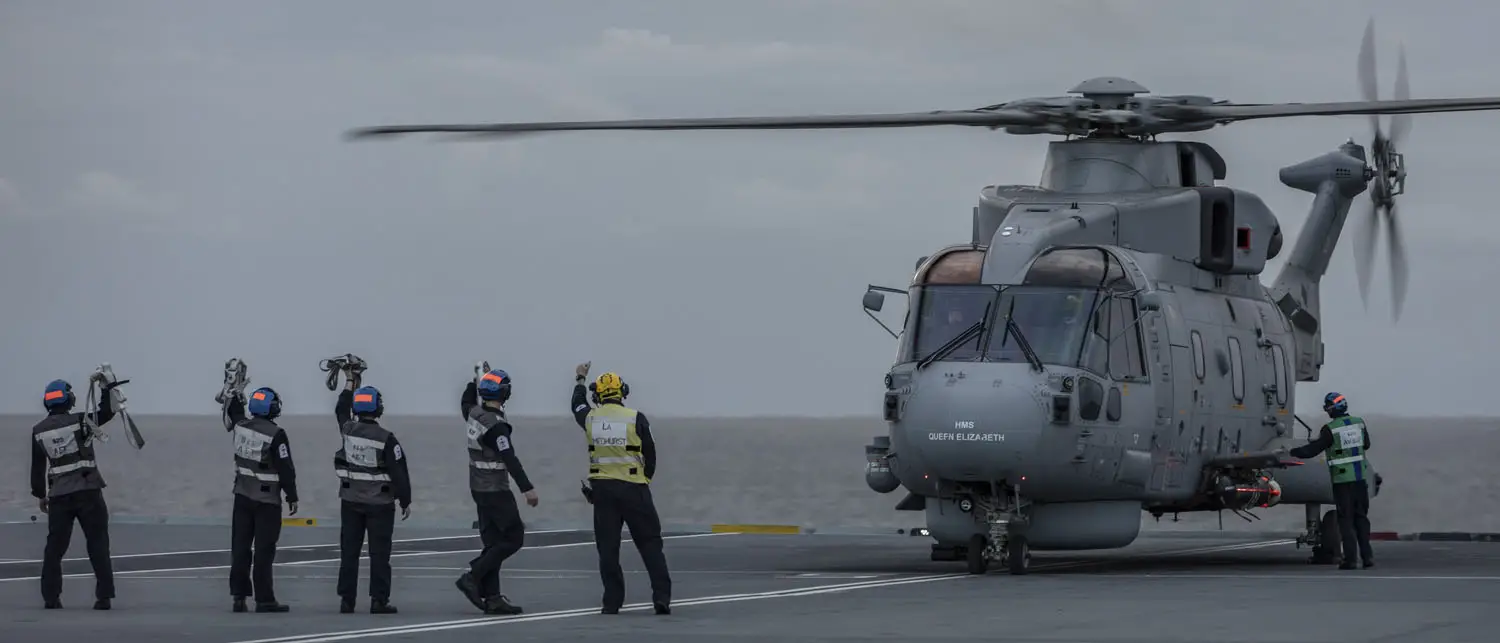The Royal Navy’s premier submarine hunters are much better prepared to defend Britain’s future flagships after a three-month workout in the USA. Merlin helicopters of 814 and 820 Naval Air Squadrons – based at RNAS Culdrose – joined new carrier HMS Queen Elizabeth and frigate HMS Northumberland to form an invisible, impenetrable ring of steel around the task group on its deployment to the USA.

It’s the mission of the helicopters – plus a dedicated submarine-hunting frigate – to prevent any underwater threat getting within torpedo or missile range. A series of anti-submarine exercises – firstly a Canadian-led NATO workout off Nova Scotia, then against American Los Angeles-class hunter killers off the Eastern Seaboard of the USA – allowed sailors and aircrew to help develop the tactics and routines needed to defeat the latest boats.

The submarine threat is the greatest faced by a carrier strike group believes 820 Squadron’s senior pilot Lieutenant Commander Robert Bond, who commanded the detachment aboard HMS Queen Elizabeth. Aircrewman Petty Officer Andrew ‘Smudge’ Smith – who helps operate the sub-hunting sensor suite in the back of a Merlin – said the American boats proved to be formidable ‘foes’. The submarine threat is the greatest faced by a carrier strike group believes 820 Squadron’s senior pilot Lieutenant Commander Robert Bond, who commanded the detachment aboard HMS Queen Elizabeth.

That pressure demands supreme efforts – and not just from the four crew in the helicopter; for every hour in the air a Merlin Mk2 requires 60 hours of maintenance in the carrier’s cavernous hangar, work performed by a 60-strong team of engineers, technicians, and avionics experts on Queen Elizabeth. Aboard HMS Northumberland, the maintenance burden was carried by just ten mechanics. They put in more than 9,000 hours – individually more than one year’s work – to support more than 50 sorties by the frigate’s Merlin.















